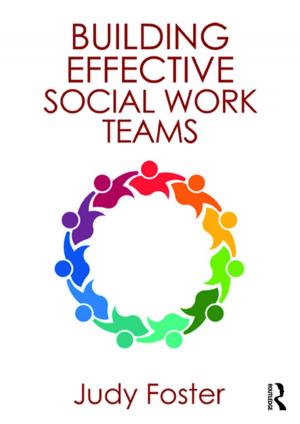Refugee Women and Their Mental Health
Shattered Societies, Shattered Lives
Nonfiction, Social & Cultural Studies, Social Science, Cultural Studies, Emigration & Immigration, Political Science| Author: | Ellen Cole, Esther D Rothblum, Oliva M Espin | ISBN: | 9781135837679 |
| Publisher: | Taylor and Francis | Publication: | May 13, 2013 |
| Imprint: | Routledge | Language: | English |
| Author: | Ellen Cole, Esther D Rothblum, Oliva M Espin |
| ISBN: | 9781135837679 |
| Publisher: | Taylor and Francis |
| Publication: | May 13, 2013 |
| Imprint: | Routledge |
| Language: | English |
Currently, there are over 15 million legally designated refugees all over the world and it is documented that 75 percent of those refugees are women, yet most of the existent literature does not focus on this group as women. Most of the literature focuses on political, economic, and social issues with very little reference to the mental health implications of the refugees’experiences as women. Refugee Women and Their Mental Health begins to fill this paucity of information on female refugees’experiences.
A book of immediate interest, Refugee Women and Their Mental Health focuses on understanding the plight of women refugees around the world, with an emphasis on mental health. The book adds successful and innovative treatment and recovery models for these women survivors.
Some of the chapters are written by women who are therapists/psychologists now and who have been refugees themselves. This adds additional insight into the plight and resulting mental health problems of refugee women. The chapters cover a vast range of topics:
-
torture and sexual abuse as refugees/victims of state violence
-
elderly women refugees
-
immigration law and women refugees
-
first-person narratives
-
the transformation of identity
-
successful creative treatment programs
It becomes clear that women refugees from all over the world under different political events and circumstances share common values and have similar mental health needs. Refugee Women and Their Mental Health explores processes of recovery from the traumas experienced by these women and offers a variety of models for the application of feminist theory to the plight of women refugees. Experienced therapists of women and those in training to be therapists will want to read this book. The topics of refugee women rarely comes up in training programs, so the information in this book is vital for therapists, policy makers, and other service providers and professors of psychology of women, immigration and social work issues, and women and mental health issues.
Currently, there are over 15 million legally designated refugees all over the world and it is documented that 75 percent of those refugees are women, yet most of the existent literature does not focus on this group as women. Most of the literature focuses on political, economic, and social issues with very little reference to the mental health implications of the refugees’experiences as women. Refugee Women and Their Mental Health begins to fill this paucity of information on female refugees’experiences.
A book of immediate interest, Refugee Women and Their Mental Health focuses on understanding the plight of women refugees around the world, with an emphasis on mental health. The book adds successful and innovative treatment and recovery models for these women survivors.
Some of the chapters are written by women who are therapists/psychologists now and who have been refugees themselves. This adds additional insight into the plight and resulting mental health problems of refugee women. The chapters cover a vast range of topics:
-
torture and sexual abuse as refugees/victims of state violence
-
elderly women refugees
-
immigration law and women refugees
-
first-person narratives
-
the transformation of identity
-
successful creative treatment programs
It becomes clear that women refugees from all over the world under different political events and circumstances share common values and have similar mental health needs. Refugee Women and Their Mental Health explores processes of recovery from the traumas experienced by these women and offers a variety of models for the application of feminist theory to the plight of women refugees. Experienced therapists of women and those in training to be therapists will want to read this book. The topics of refugee women rarely comes up in training programs, so the information in this book is vital for therapists, policy makers, and other service providers and professors of psychology of women, immigration and social work issues, and women and mental health issues.















